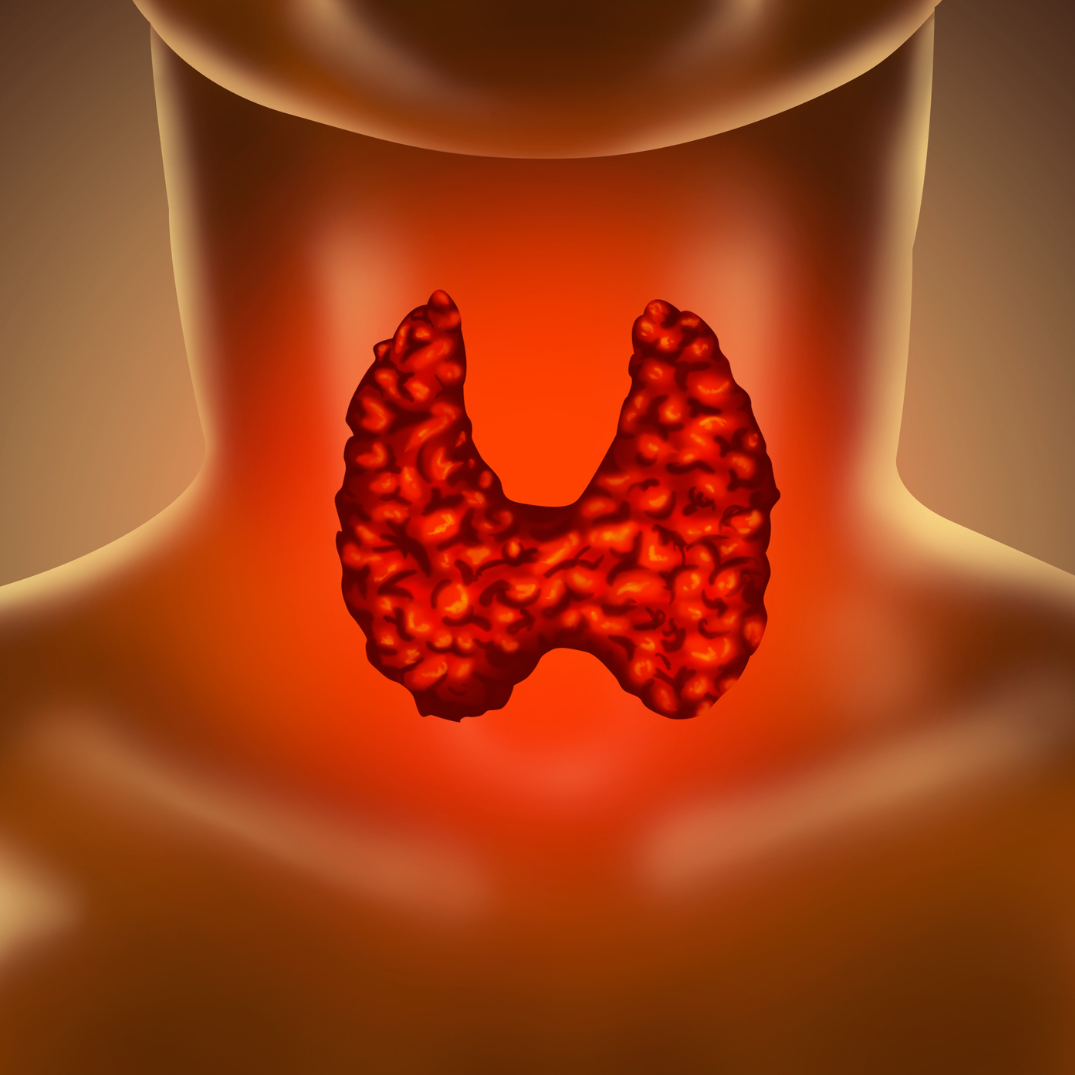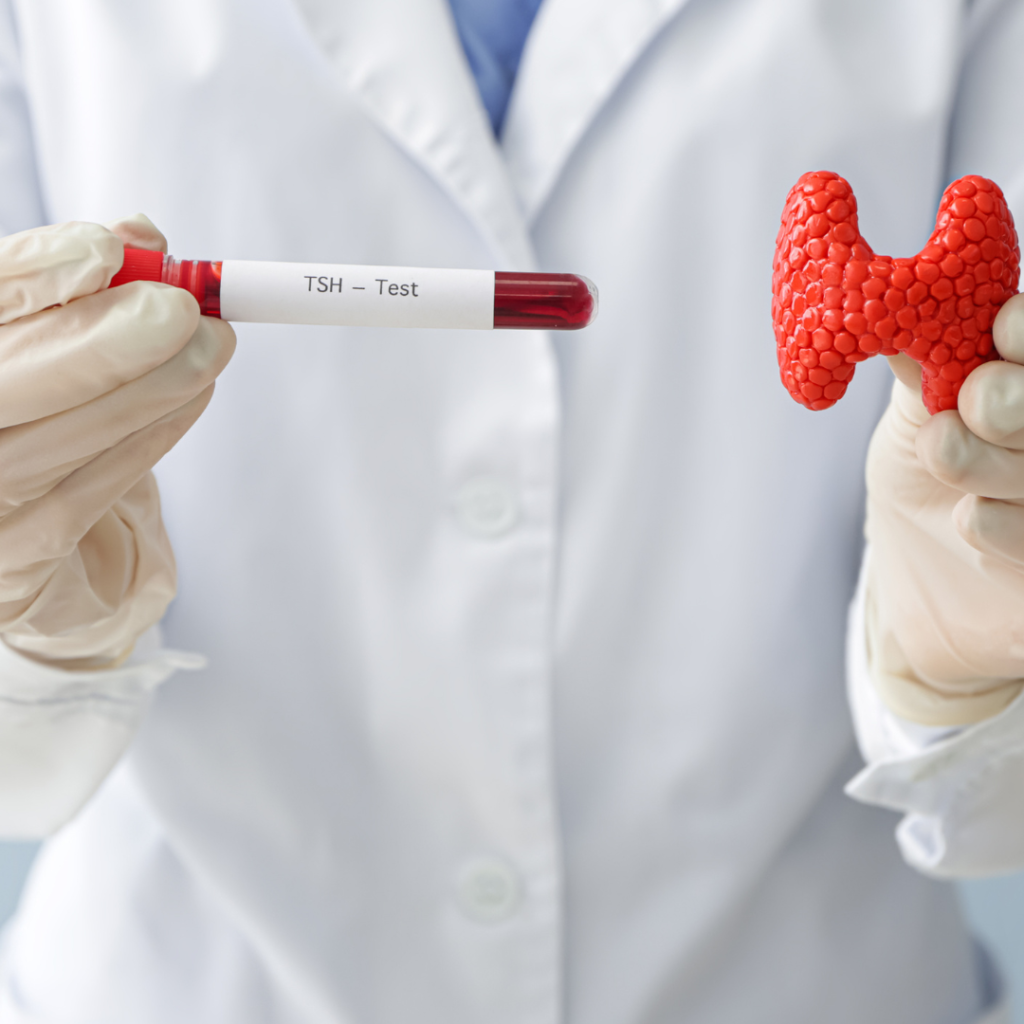
You’ve probably heard of the thyroid gland but may not know why it is vital to your health.
Your thyroid is a small butterfly-shaped gland in your neck, just below the Adam’s apple. It is
part of a network of hormone-making glands in your body known as the Endocrine System.
The thyroid gland makes hormones that regulate metabolism and other crucial functions such as
heart rate, digestion, and mood.

Thyroid disorders occur when the gland is overactive and makes too much hormone
(Hyperthyroidism) or underactive and doesn’t make enough (Hypothyroidism).
Hypothyroidism
One of the most common thyroid disorders is hypothyroidism, which occurs when the gland
doesn’t make enough hormones. It’s most commonly caused by an autoimmune condition,
Hashimoto’s Thyroiditis. If untreated, the gland eventually stops working.
Symptoms may not be noticeable initially but can include
- Fatigue
- Weight gain
- Constipation
- Slow heart rate
- Muscle weakness
- Dry skin
- Coarse hair and skin

Hyperthyroidism
Another common thyroid problem is hyperthyroidism, a condition in which the gland makes too
many hormones. Graves’ Disease, an autoimmune disease, usually causes hyperthyroidism.
Other causes include an overactive thyroid nodule or lump and a short-term thyroid gland
inflammation.
Untreated or severe Graves’ Disease can lead to thyroid eye disease, causing eye pain, bulging
eyes, and vision loss.
Symptoms of hyperthyroidism can include:
- Losing weight without trying
- Rapid heart rate
- Sweating
- Diarrhea
- Nervousness
- Muscle weakness
- Thinning skin and brittle hair
Thyroid Goiter
An enlargement of the thyroid gland is a goiter. It is usually caused when there isn’t enough
iodine in your diet. Believe it or not, your body needs iodine to make thyroid hormones. When
there’s inadequate iodine, the thyroid gland gets larger to collect all the iodine in your system to
make thyroid hormones.
A goiter usually appears as a swelling in the front of the neck. Other symptoms depend on
whether the goiter contains overactive thyroid nodules or lumps or is underactive and unable to
make enough hormones.
Adding iodine to the diet by using iodized salt in food preparation can prevent goiters.
Thyroid Tumors
The thyroid gland can develop tumors, which can be cancerous or non-cancerous. Treatment
often requires surgical removal of a part or the entire gland. A person who has had some or all
of their thyroid gland removed may need to take thyroid hormone replacement medication.
When to seek treatment for thyroid symptoms
Consult your doctor if you have signs and symptoms of hypothyroidism or hyperthyroidism or if
you can see or feel a swelling in the lower front of your neck.
Hormone replacement, medications, radioactive iodine, and surgery are various ways to treat
thyroid problems.
Thyroid disorders are pretty common in adults and are successfully treated when diagnosed
early.
Toju Chike-Obi, MD

